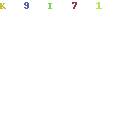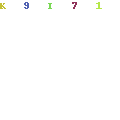Text Size:
Mumbai: Mumbai’s showpiece Metro 3 project is staring at an inordinate delay again, this time not because of activists, a reluctant regulatory body or a project-affected person but because the Central government took the unprecedented step of taking the state to court .
The clash took place in the Bombay High Court, which the central government had moved last month against the Maharashtra government over transfer of land for a car depot for the 33.5-km Colaba-Bandra-Seepz Metro.
The land in question is 102 hectares in Kanjurmarg, which the Centre has claimed ownership of. And Wednesday, the high court, in an interim order, stayed the transfer of land to the MMRDA, Mumbai’s development authority.
The location of the car depot for the metro project has been a bone of contention between estranged allies — Thackeray’s Shiv Sena, which leads the MVA government, and the opposition BJP, which is in power at the Centre.
The Sena was insistent on moving the proposed car depot out of its original location, Mumbai’s ecologically sensitive Aarey Colony, ever since 2015 when it was a constituent of the government led by BJP’s Devendra Fadnavis. Aarey is one of the few remaining green lungs of Mumbai.
However, the BJP has maintained that Aarey Colony is the only feasible location for the project to be completed within a certain timeframe and cost bracket.
Within Thackeray’s first year as CM, he moved the car depot out of Aarey Colony to the contentious Kanjurmarg land. This kicked off another one of the many Centre-state rows since the MVA government was sworn-in last November.

Also read: With car shed at Kanjurmarg, new Mumbai Metro corridor could now connect to Thane towns
Delays and rising costs
The 33.5-km Colaba-Bandra-Seepz line, popularly known as Metro 3, is considered to be key as it proposes to connect the tip of south Mumbai to the city’s north, linking business districts including the Bandra-Kurla Complex. The metro line will also provide connectivity to the Chhatrapati Shivaji Maharaj International Airport.
The project, which is being implemented with a loan from the Japan International Cooperation Agency (JICA), was originally expected to be completed by 2021. But with the proposed change of the car depot’s location from Aarey Colony to Kanjurmarg, the project was staring at a two-year delay, multiple officials associated with the project had told ThePrint.
Over the past two months, the MMRDA had started preliminary work of soil investigation and levelling of the Kanjurmarg land.
However, the project is now set to be further delayed, with a division bench of Bombay HC Chief Justice Dipankar Datta and Justice Girish S. Kulkarni staying the transfer of the Kanjurmarg land on a prima facie observation that there were multiple claims that need to be settled by giving all parties a hearing. The case will be heard next in February 2021.
While the project cost has not been officially revised from the original Rs 23,136 crore, government sources say it has already swelled nearly 40 per cent to about Rs 32,000 crore. Dithering on the Aarey-versus-Kanjurmarg question will keep the meter running, leading to more time and cost overruns.
The MVA government has contended that the impact on cost will be minor, with officials pegging it in the range of Rs 360-400 crore, but former CM Fadnavis has lashed out at the decision, saying it will lead to a cost escalation of Rs 4,000 crore.
Former BJP minister Ashish Shelar said: “The collector’s order (allotting land to the MMRDA) was passed under political pressure. The government is now having to take the order back. The project will now get delayed. There will be cost escalation. It will burden citizens if Mumbai with higher ticket prices.”
Taking a dig at Uddhav Thackeray’s son and Maharashtra Environment Minister Aaditya Thackeray, Shelar added: “Land was available at Aarey, 90 per cent of the work was done, the Supreme Court had given its permission… Even then shifting the car shed to Kanjurmarg is simply a child’s stubbornness.”
Aaditya Thackeray, who had personally pushed for the shift from Aarey to Kanjurmarg, tweeted Wednesday that the car shed at Kanjurmarg will, in the larger scheme of things, save almost Rs 5,500 crore as it is crucial for at least three more metro lines apart from Colaba-Bandra-Seepz.
“We await the detailed written order to decide the future course of action,” he added.
Hon’ble HC has granted a stay to Kanjurmarg work. We await the detailed written order to decide the future course of action.
This land is crucial for Metro Line 6, 4 and 14, apart from 3, as it will save almost ₹5500 crores of Govt and be a nodal point for 1 crore citizens.— Aaditya Thackeray (@AUThackeray) December 16, 2020
Also read: ‘Posturing & double standard’ — why Shiv Sena is drawing flak for leading Aarey stir
Centre’s stake in the project
The Centre-state tussle on this issue could be escalating for reasons beyond the obvious political differences between the BJP and the Shiv Sena over the location of the car depot — the Centre also has a stake in the project and will have to bear the brunt for any time and cost overruns.
The Metro 3 project is being executed by the Mumbai Metro Rail Corporation, a joint venture between the state government and the Centre.
Both governments have contributed equal equity to the project — Rs 2,403 crore, or 10.4 per cent each of the original project cost. Besides, the Centre has also extended a subordinate debt of Rs 1,025 crore, or 4.4 per cent of the project’s original cost.
The JICA has agreed to fund Rs 13,235 crore, or 57.2 per cent of the project cost. The borrower, officially, is the Centre, and will have to face the music for any deviations.
A former technocrat and an expert in urban infrastructure development, who has worked with the state government, said, requesting anonymity: “The lending agency will criticise any delay in the project as it leads to questions of repayment and refinancing. It disturbs all the financial calculations based on which the loan was granted. It also adversely affects any potential engagement with the agency for other projects across the country. So, if it is going to result in a delay of two to three years, the Centre will definitely object.”
Besides, there is also the larger issue of the ownership of Mumbai’s salt pan lands — a tug of war between the Centre and the state that has gone on for over four decades.
The Kanjurmarg land is an unused salt pan, and the Mumbai suburban collector had relied on a 2018 order by then-state revenue minister Chandrakant Patil, now head of the state BJP, which kept the ownership of those lands where salt is no longer cultivated with the state government, a source involved in the decision-making process said.
The Centre, through its petition in the Bombay High Court in November, challenged this decision and the allotment of the Kanjurmarg land to MMRDA based on it.
Other flash points between Centre and state
The sparring over the Kanjurmarg land and the location of the metro car shed is just one of the many flash points between the Centre and the Maharashtra government.
In an interview to Shiv Sena’s mouthpiece, Saamana, last month, CM Thackeray had hinted that Narendra Modi was not worthy of sitting on the prime minister’s chair, alleging that the Centre does not support non-BJP-ruled states.
“Someone is PM today, someone else will be tomorrow… It is expected that you will forget party differences and work. You take an oath. You should treat everyone equally, but instead, if you are bringing politics into it, then you aren’t worthy of sitting on that chair,” Thackeray said.
The MVA government’s first brush with the Modi government came within days of the senior Thackeray being sworn-in as CM after snapping ties with the BJP and allying with rivals Congress and NCP. Thackeray had written to Finance Minister Nirmala Sitharaman asking the Centre to release the state’s Goods and Services Tax dues worth Rs 15,558 crore. This issue dominated Centre-state relations throughout the first year of the MVA government, with Thackeray and his allies raking it up every time a crisis hit Maharashtra — such as the rising expenditure on Covid control, Cyclone Nisarga, and floods in parts of the state.
The state and central governments also openly clashed on the arrangement of special trains to send migrants stranded in Maharashtra’s cities back to their home states during the pandemic lockdown. The MVA government alleged that the Centre was not arranging sufficient trains despite the state’s demand, while the Union railway ministry retorted saying the state was not providing timely information about the list of passengers.
The probe into actor Sushant Singh Rajput’s death became another political stand-off, with the CBI taking over the Mumbai Police’s investigation, prompting the Maharashtra government to withdraw its general consent to the central agency.
Thackeray’s government has also been opposed to PM Modi’s pet Mumbai-Ahmedabad bullet train project. Earlier this year, the CM had told Saamana that the subject had taken a backseat, and he would prefer a Mumbai-Nagpur bullet train, rather than one that connects the country’s financial capital with Ahmedabad.
Also read: Why Mumbai says Aarey Colony protests aren’t only about felling trees for Metro car depot
Subscribe to our channels on YouTube & Telegram
Why news media is in crisis & How you can fix it
India needs free, fair, non-hyphenated and questioning journalism even more as it faces multiple crises.
But the news media is in a crisis of its own. There have been brutal layoffs and pay-cuts. The best of journalism is shrinking, yielding to crude prime-time spectacle.
ThePrint has the finest young reporters, columnists and editors working for it. Sustaining journalism of this quality needs smart and thinking people like you to pay for it. Whether you live in India or overseas, you can do it here.
Support Our Journalism
Source: https://theprint.in/politics/how-latest-centre-maharashtra-clash-over-car-shed-could-jeopardise-mumbais-metro-3-project/568666/


